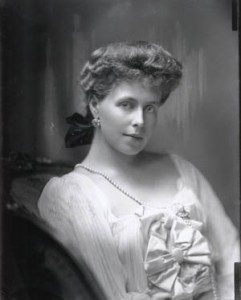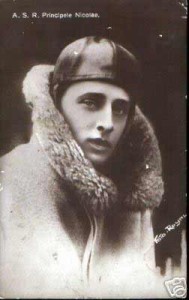Vampirism of the the New and Old Ottomans
(Romanian Presidential elections)
Editorial
One unexpected surprise (and irritation) which the Romanian victors experienced since the Paris Peace Treaty, was the unwelcome association with vampires and vampirism, which came about as part and parcel of the union with Transylvania, after WWI.
Ever since the demise of Nicolae Ceausescu, the latest Romanian dictator to be associated with vampirism, the accusation of “sucking the blood of the people” was a common Marxist-Leninist syntagm. Yet the heirs of the post-Cerausescu’s regime got the practice to an even finer if more refined tune.
Unlike their political predecessors, current Romanian leaders tried instead to capitalise on their unfortunate image and exploit it by turning tough luck to financial gain. The idea of a “Dracula Park”, equivalent of a vampire Disney land was much heralded to the world at large and its location to be was none other than Dracula’s own home town in Transylvania. The idea hatched in the alembic of the Romanian Government’s inner sanctum was so irresistible that Government ministers headed by PM Adrian Nastase, to the lesser fry but, nevertheless, distinguished politicians, gave their blessing to this latest extraordinary wonder (and bought shares in the vampire Company): such is Romania, full of surprises and of fun.
Sadly for this unprecedented Transylvanian venture, involving EU funds (and advice from Price Waterhouse?), Dracula Park also attracted the attention of consummate environmentalist and arch-conservationist Charles Windsor, of Welsh and Cornish repute.
Amongst Charles’ team of advisers was an indomitable champion of Romanian causes, Jessica Douglas Hume, a lady with a thorough experience of things Romanian, who two decades earlier defied Ceausescu’s own secret police, which wrestled with her and declared her a “very dangerous lady”: she survived another day to burry Dracula’s Park forever, having earlier saved scores of Romanian villages from the threat of Ceausescu’s bulldozers.
Faced with the adverse publicity of this illustrious British tandem, Prime Minister Nastase had to back-pedal.
Vampirism is a pre-Christian tradition, which entered the European psyche since times immemorial. The phenomenon fascinated many generations of British from Byron and Mary Shelley to Bram Stoker. It also interested a young lady graduate of Bedford College London, Dr. Agnes Kelly (1875 –1929), married to a Romanian scientist Gheorghe Munteanu-Murgoci, who brought her to Romania. Kelly’s publications on Romanian vampires still make today classic reading.
Few people know that by virtue of her Anglo-Romanian marriage, Miss Kelly’s family members included such relations as a son-in-law, who was a distinguished President of the Cambridge Debating Society, a graduate in Theology and Anglican Minister who became Dean of Peterborough Cathedral, but also, most improbably, in Romania, yet another Minister, a step-son, a communist government minister, that is, in the person of Miron Constantinescu. Ironically Miron Constrantinescu was an intimate associate of Ceausescu: perhaps never ever before had an Anglican God come so perilously close to a Romanian vampire.
Recent Romanian politics confirmed a long-established truth, namely that Romanian communists are seasoned politicians and no sooner they lick the wounds of their latest defeat, (dismissed as a mere, temporary set-back), that they come to the charge with yet a bigger and better idea: if vampirism cannot help popularity at the polls, surely necrophilia can. The switch of tactics is even more pressing as the Presidential elections are to take place, very soon and the current incumbent had a bitter taste of his plummeting popularity, on an official visit to Toronto. In Canada, just as he was to deliver an official speech, a young Romanian exile hit Iliescu on the head with a cheese tart: “it is for people like you, that we were forced to take the road of exile”. Iliescu’s Culture Minister, Razvan Teodorescu, came to the President’s rescue, labelling the unruly crowd as a bunch of “mentally retarded”. The Canadian police did not intervene – they looked on bemused, as the gesture fell within the limits of the freedom of expression, allowed in Canada on such political rallies… not so in Romania, where the police and tribunals are mere pawns of the existing ruling Socialist party and where the unwary are dragged into lengthy and expensive court suits. Freedom of the Press is on the list of endangered species in Dracula’s country, and “Journalistes sans Frontieres’, “Amnesty International” and other Human Rights organisations are well aware of the Romanian practice.
Mindful of the great leverage which Romanian exiles, and there are over one million of them since 1990, alone, hold in the 2004 elections, President iliescu had made unrelenting attempts at attracting new voters. Amongst these are targeted Romanian royalty and royalists as well as the aristocratic families and their sympathisers:
Steeped in history and fashioned in pomp and pageantry historical events are staged, all over the country, with the President and government officials in attendance: nearly without exception all these shows involve a reburial of a monarch or a medieval prince, or, perhaps, the 500th memorial service of some emblematic ruler.
The latest such “historic event” was the blessing of the Cotroceni monastery church, razed to the ground by Ceausescu, in 1980 and rebuilt by Iliescu. The Monastic complex of historic buildings is the very presidential palace in Bucharest, which was erected in the 17th c by the ruling prince (voyevode) Serban Cantacuzino. His earthly remains were brought back for re-interring, before the smell of fresh paint had time to disappear. Military honours were observed by the Presidential guard, in the waft of Orthodox incense and Byzantine chants. The exiled Cantacuzinos, from the four corners of the world gathered fro the memorial service held by patriarch Teoctist the bearded cleric who presided over the very demolition of the church he now blessed. As head of the Romanian church, a few years ago, Teoctist invited the Pope to visit Romania, the first time ever the Pope visited an Orthodox country, before Greece or Russia where he still hopes to be invited. Last months, Iliescu visited the Pope and although the Romanian Government’s promises of returning the Catholic and Uniate churches the properties confiscated by communists remained without cover, Iliescu, on this occasion, allocated, as an electioneering ploy, some grant to the Catholics in Romania.
All these historic forays border on obsessive religion and cult of the dead. They are carefully choreographed events all be it copying in a sense some of the national funerals and expression of general grief shown, in a different context in the West (the funeral of Princess Diana? Maybe the pilgrimage to Compostella, or to Lourdes?)
But in Romania, the cult of the dead and the rich traditions that surround burials, memorial services and wakes have a propensity for grief soon veering to public revels. Such bi-polarity is good political capital for the Party in Government anxious to extend its position by another four-year term: the grief helps a communion of spirit and gives a sense of history, whilst the ensuing revels demonstrate confidence and optimism in the leadership of the day. In this way history becomes the engine of the governmental hearse: the confused electorate attending such pantomime may well ask – are these people on the way out, or, rather on the way in, yet again, for a fifth term, but one, since 1990?
All the above shenanigans, performed by a Communist and a close aide of Ceausescu, may appear hilarious in any democracy, but in Romania, a country systematically plundered by the Iliescu’s party, it has a particularly sad if unsavoury repercussion, as hundreds of thousands of young Romanian professionals, 9and even unskilled workers and youngsters seeking their fortune) cross the border, legally or illegally, by any means in order to make a living in the West.
The haemorrhage is one which is completely misunderstood by Iliescu who said at a recent Seminar on Romanian Youth emigration, held at Sinaia. The nearest translation of the President’s inspired dictum is presented below, in the Anglo-Saxon vulgate, to which we are used:
“Whilst Europe was frolicking, we (Romanians) were under the domination of great empires. The Western nations did not count only on their own ‘fat’, but rather lived for centuries off other people’s stamina; such is their historic advantage. We (Romanians) had instead to pay tax to the Ottoman Porte.”
(….)
The Romanian President went on suggesting that today’s Romanian Government ought to be compensated, by the West, for such brain drain
Quite!
If anybody was to receive compensation from the Western countries, employing since 1990 more than one million Romanians, it should be not the Romanian Government for the loss of skilled labour, but the emigrants themselves .
It is the regime of Mr Ilescu who forced these desperate people to be uprooted, to be forced into exile, with all the related pain and drama of broken families and broken lives.
Mr Iliescu’s statement borders on insensitivity, matched only by Ceausescu’s practice of passports for dollars, the kind of “blood-money” exacted from desperate peoples wishing, for decades past to escape communism.
For Ceausescu sold hundreds of thousands of ethnic Germans and Jews to the governments of West Germany and Israel, respectively, Now his successors are forcing the poor and the desperate native Romanians out of the country on the excuse that such poverty is the result of centuries-old taxation by the Ottomans!
Thankfully the old Roman empire was left out of the political discourse, but before the Presidential campaign is over, surely it may not be too late to remind one of the Dacian gold carried to Rome some 2,000 years ago, rather than the National Bank of Romania’s gold reserves lost to Moscow 85 years ago.
Before the November elections the New Ottomans carry on blaming the Old, as if there was no tomorrow, but mostly as if the electorate was dim and dumb.






